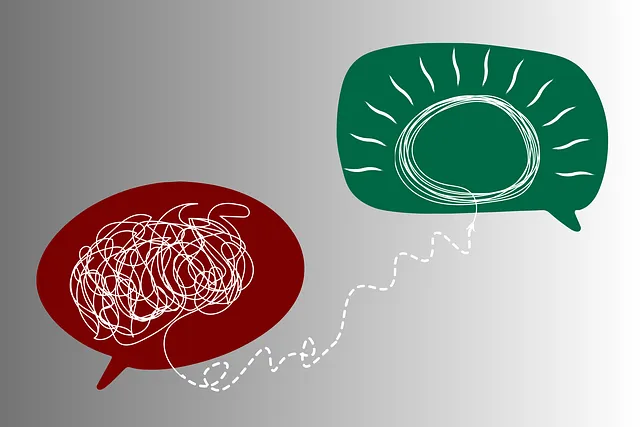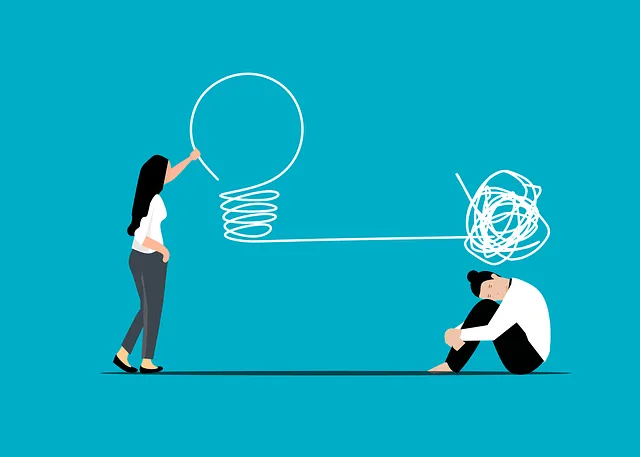Burnout among healthcare providers is a significant concern driven by demanding work environments and high stress levels, impacting well-being, clinical judgment, and patient outcomes. Superior Kaiser Permanente mental health centers combat this through extended visiting hours, fostering self-care practices and emotional intelligence. By integrating compassion cultivation, destigmatizing mental health, advocating for policy changes, and offering flexible visiting hours, these centers enhance staff well-being and resilience. Evidence-based interventions like mindfulness meditation, empathy building, and open communication are crucial in mitigating burnout risk and improving job satisfaction.
Healthcare provider burnout is a growing concern, impacting patient care and organizational success. This article explores comprehensive strategies for prevention, focusing on Kaiser Permanente’s approach. We delve into understanding burnout causes and its profound effects, highlighting the critical role of mental health support. By examining evidence-based interventions and self-care practices, we offer insights to enhance work-life balance, build resilience, and create a sustainable environment for healthcare staff, ultimately improving patient outcomes at superior Kaiser Permanente mental health centers during visiting hours.
- Understanding Burnout Among Healthcare Providers: Causes and Impact
- The Role of Mental Health Support: Strategies for Kaiser Permanente
- Enhancing Work-Life Balance: Creating a Sustainable Environment
- Evidence-Based Interventions to Prevent Burnout
- Building Resilience: Empowering Healthcare Staff Through Self-Care Practices
Understanding Burnout Among Healthcare Providers: Causes and Impact

Burnout among healthcare providers is a growing concern, with significant implications for both professionals and patients. It stems from various factors, often stemming from intense work environments and high-stress levels. Healthcare workers, especially those in demanding specialties like medicine and nursing, may face challenges managing patient loads, long hours, emotional demands, and sometimes limited resources. These conditions can lead to physical and emotional exhaustion, a sense of detachment from work, and reduced professional efficacy.
The impact of burnout is profound. It not only hampers the well-being of healthcare providers but also affects their clinical decision-making and patient outcomes. Studies have linked burnout to increased errors, decreased job satisfaction, and even physical health issues. Recognizing these issues at Kaiser Permanente mental health centers, for instance, with extended visiting hours, is a step towards fostering better self-care practices and implementing communication strategies that promote emotional intelligence among staff.
The Role of Mental Health Support: Strategies for Kaiser Permanente

At Kaiser Permanente, prioritizing mental health support is paramount to mitigating burnout among healthcare providers. Recognizing that emotional well-being is intrinsically linked to professional resilience, the organization offers a comprehensive array of services tailored to meet the unique needs of its workforce. The on-site Kaiser Permanente mental health centers, with their extended visiting hours, ensure accessibility and provide a safe space for professionals to seek support confidentially.
Integrating compassion cultivation practices into daily routines can significantly enhance emotional regulation and empathy. Public Awareness Campaigns Development focused on destigmatizing mental health issues further fosters an environment where professionals feel understood and encouraged to prioritize self-care. Additionally, Mental Health Policy Analysis and Advocacy plays a crucial role in shaping organizational policies that explicitly address burnout prevention, ensuring providers have the resources and backing necessary to thrive in their roles.
Enhancing Work-Life Balance: Creating a Sustainable Environment

Creating a sustainable work-life balance is essential for preventing burnout among healthcare providers. At superior Kaiser Permanente mental health centers, implementing flexible visiting hours allows professionals to manage their personal commitments while ensuring patient care. This strategy respects the diverse needs of staff, fostering an environment where they can recharge and maintain productivity. By encouraging a healthy balance, these mental health centers reduce the risk of burnout, enhancing overall job satisfaction.
In addition, addressing mental illness stigma through community outreach programs can significantly contribute to burnout prevention. Such initiatives promote understanding, encourage support networks, and reduce the isolation often experienced by healthcare providers struggling with depression or other mental health challenges. Integrating these programs into the fabric of Kaiser Permanente’s services ensures a comprehensive approach to provider well-being, creating a more supportive and resilient workforce.
Evidence-Based Interventions to Prevent Burnout

Healthcare provider burnout is a significant concern, but evidence-based interventions offer promising solutions. One such approach involves integrating mental health services, like those provided at Kaiser Permanente’s superior mental wellness centers, into primary care settings. By normalizing conversations around emotional well-being and extending visiting hours to accommodate patient needs, healthcare providers can create an environment that supports both physical and psychological health.
Additionally, empathy building strategies and techniques for emotional regulation are proven to mitigate burnout risk. Encouraging self-care practices, such as mindfulness meditation and regular exercise, empowers providers to manage stress levels. Moreover, fostering a culture of open communication where staff can share their experiences and receive support from colleagues and supervisors is instrumental in preventing burnout and enhancing job satisfaction.
Building Resilience: Empowering Healthcare Staff Through Self-Care Practices

Building resilience is a vital strategy to combat burnout among healthcare providers. Encouraging staff to prioritize self-care practices can significantly enhance their emotional well-being and overall resistance to stress. Incorporating mindfulness meditation, for instance, has been shown to reduce anxiety and improve focus, allowing caregivers to better manage demanding situations. The Kaiser Permanente mental health center’s visiting hours can serve as a resource for staff seeking support and guidance in navigating the challenges of their profession.
Adopting mind over matter principles empowers healthcare workers to cultivate positive thinking and reframing mechanisms, which are essential tools in stress management. Regular self-care routines, coupled with emotional well-being promotion techniques, can help providers maintain balance, thereby enhancing their ability to deliver quality care. By fostering a culture that values and supports these practices, healthcare organizations can ensure their staff remains resilient and dedicated to their roles.






